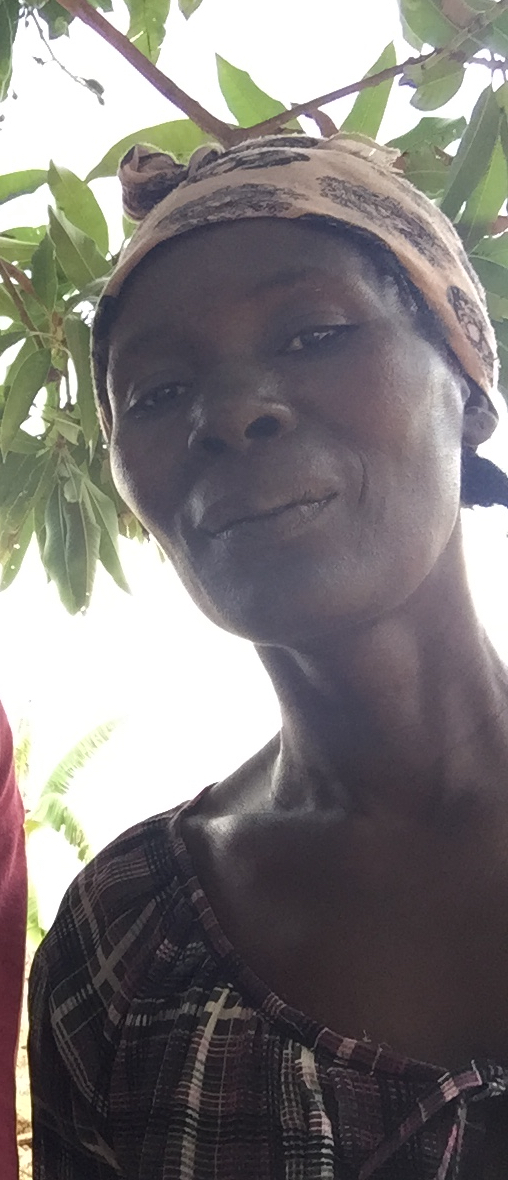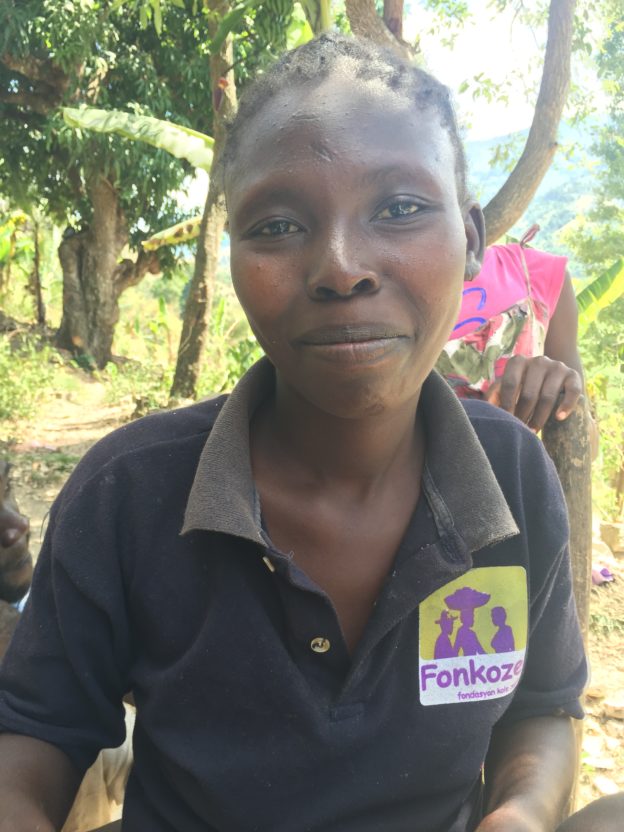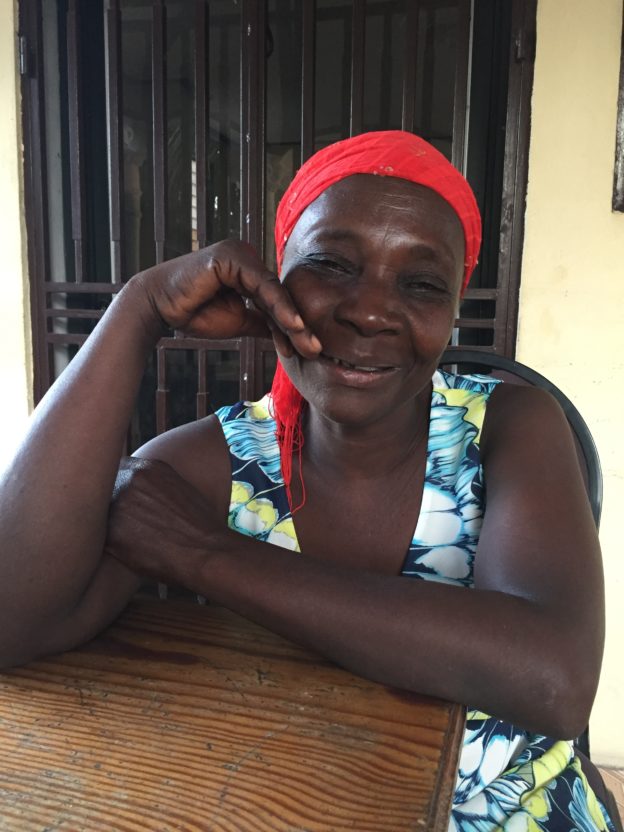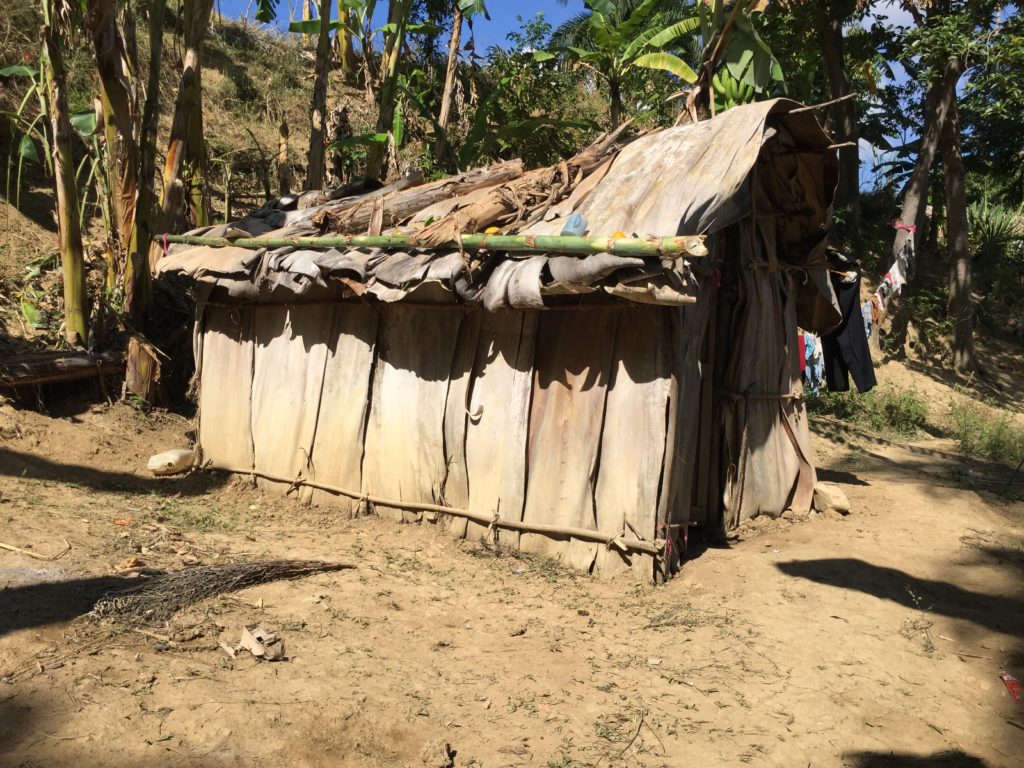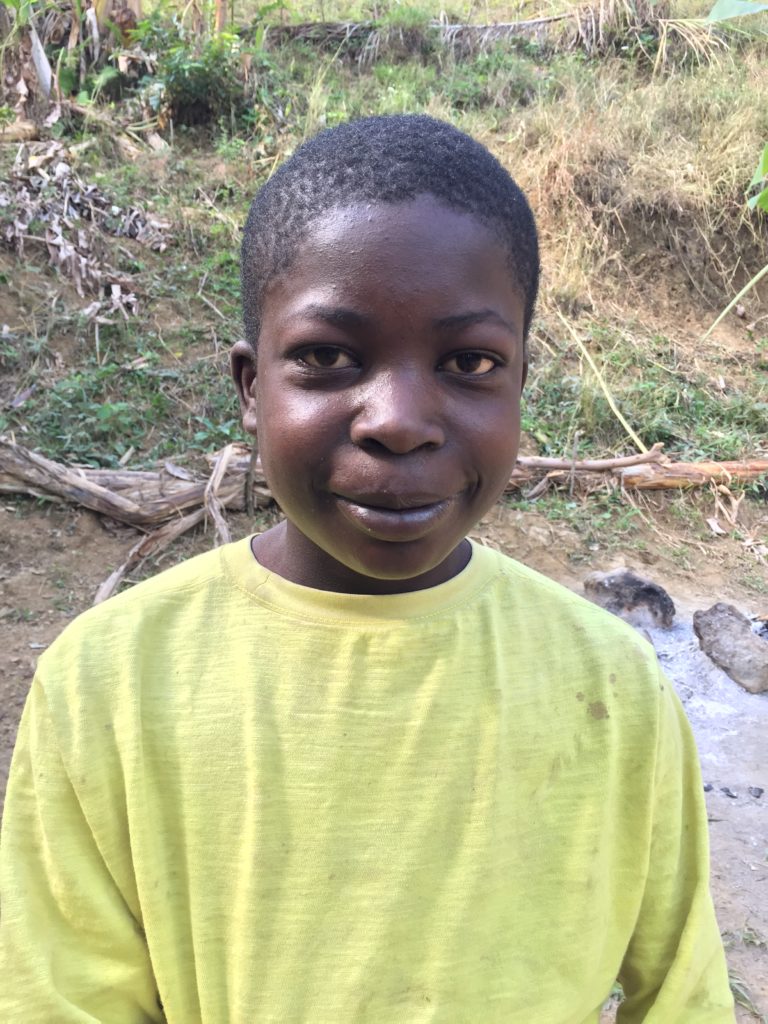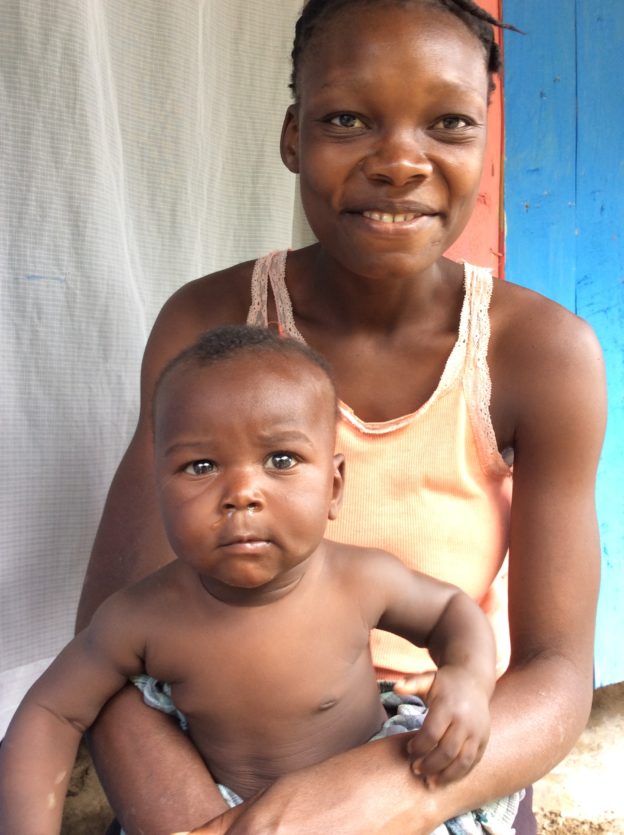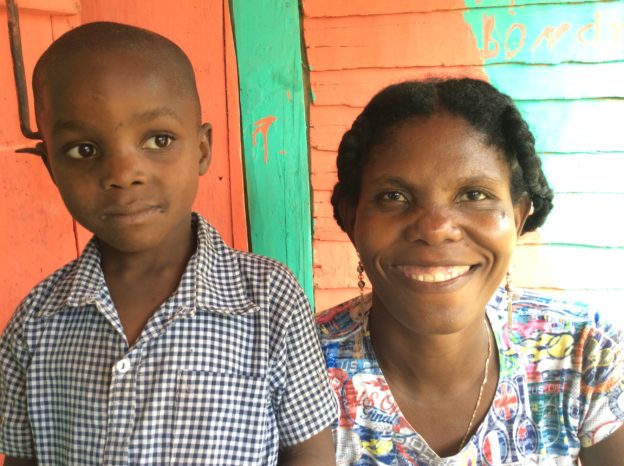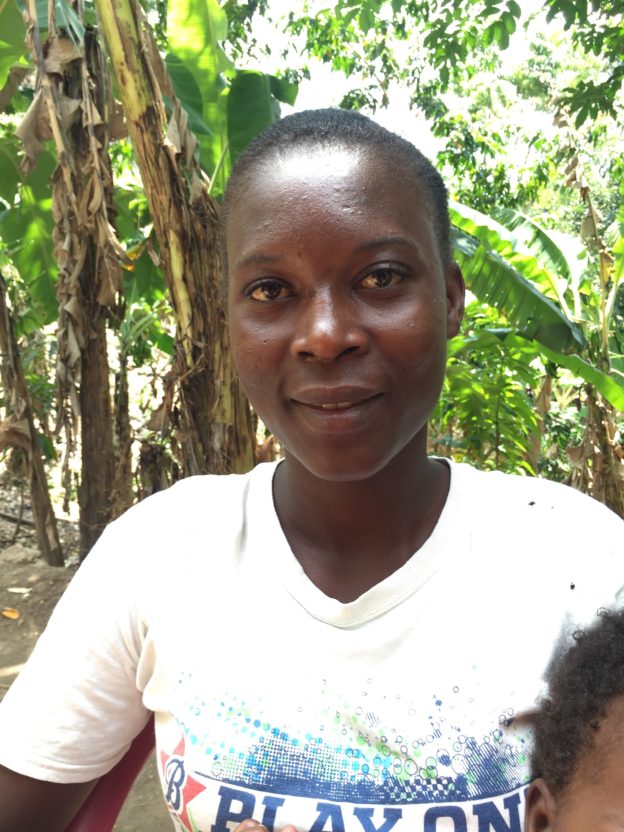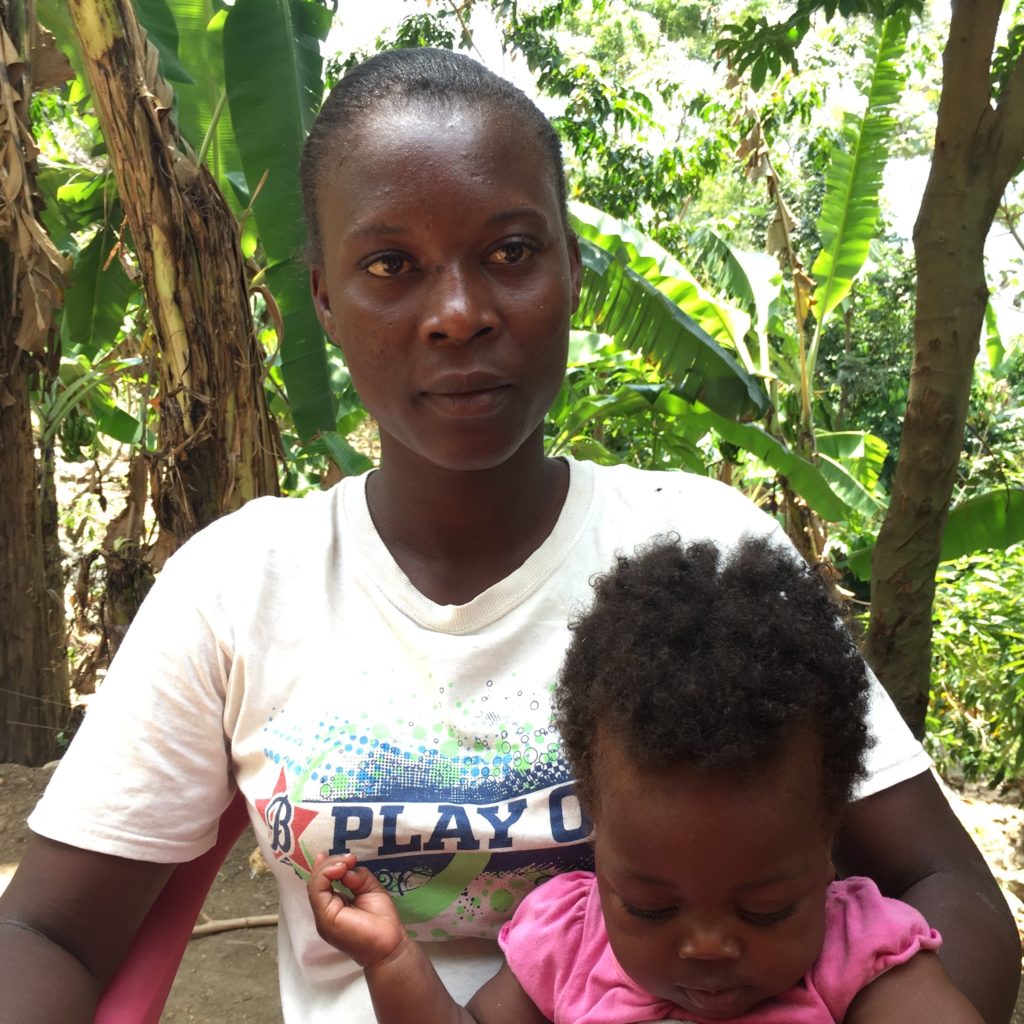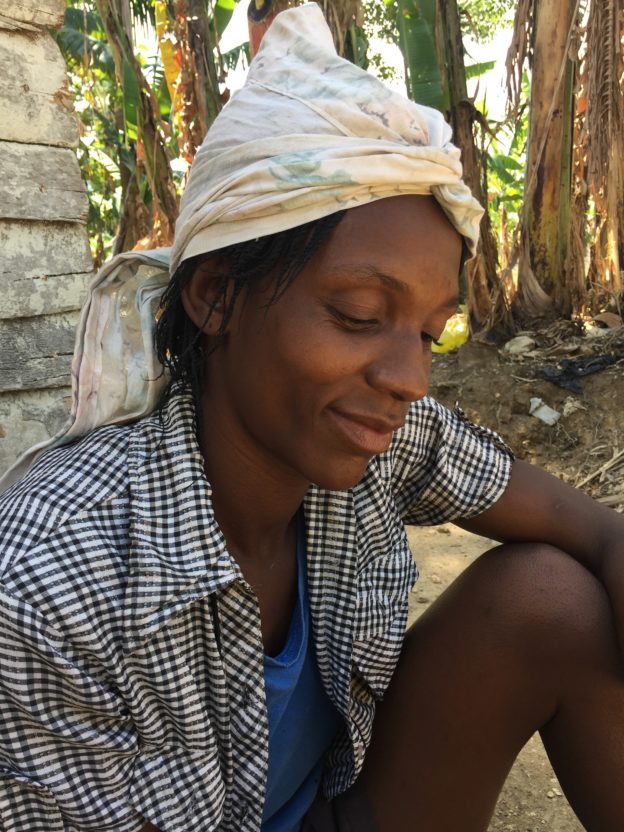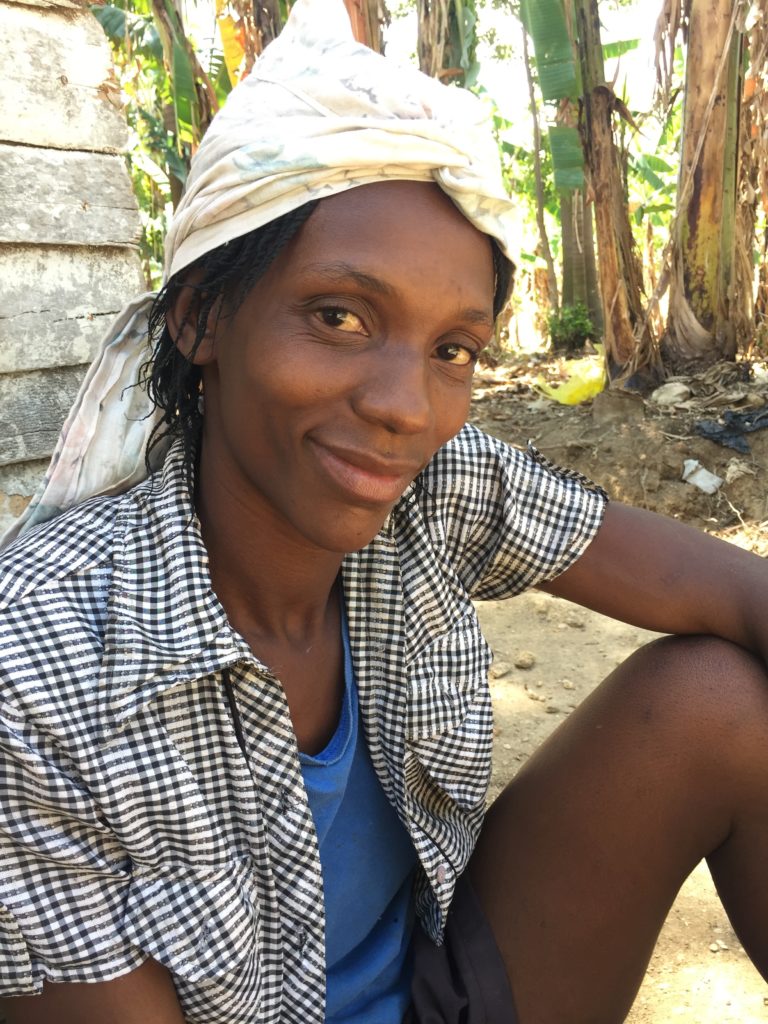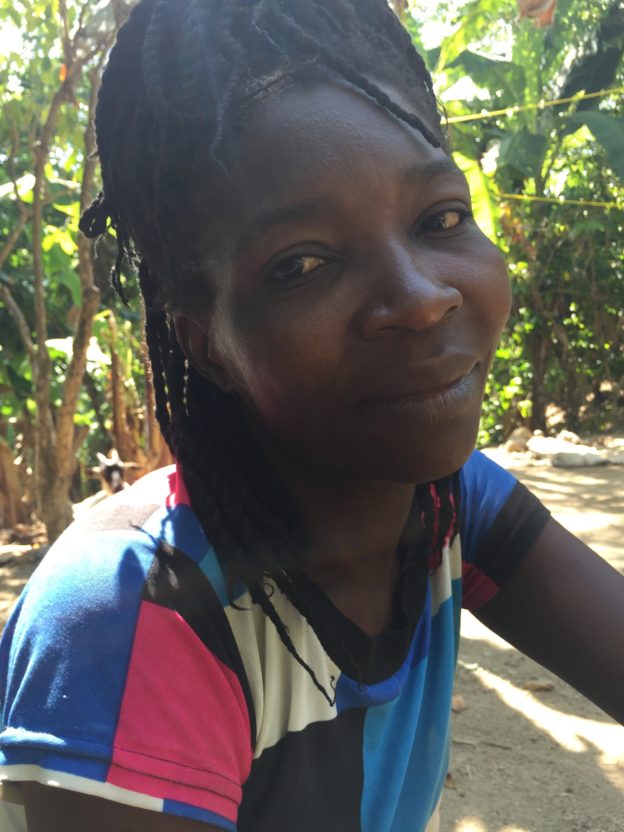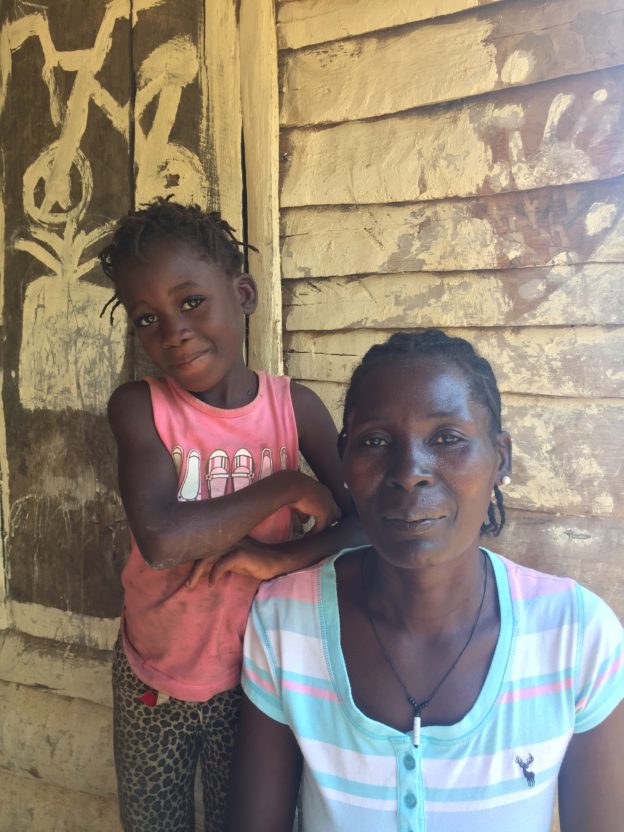Laumène was born and raised in Bwa Lafit, a corner of Lasous, which is a farming area along the ridge that separates Savanèt commune, in the Central Plateau, from Kòniyon, to its south. Her parents lacked the land they would have needed to feed their children well, supporting the family mainly through day-labor. When Laumène looks back, she can only smile at how hard things were for them. “Nowadays, they pay you for half the day, but back then it was sunrise to sunset. If you had to sell a day’s work, you couldn’t do anything else.”
She was young when she met her first husband. Laumène and their two girls lived in a home on his parents’ land. She and her husband didn’t have resources to build a livelihood where they lived, so he would travel to the Dominican Republic and work there.
Shortly after his parents died, he went for the last time. Laumène says he was murdered. In any case, he died. She and her daughters thought they would stay where they were. The daughters, in particular, had a right to their share of their father’s inheritance. But her brother-in-law forced them off the land, and Laumène had to return with the girls to her own parents’ home.
She couldn’t stay long. Her parents couldn’t help her. So, when a man offered her and her girls a home, she moved in with him, even though he was already married to another woman.
She was still living in the shack that he built for her when she joined CLM. At the time, she described herself as living badly. She was supporting herself and the kids through farming, but she didn’t have the cash to invest enough to make it work. She had trouble feeding her children, and wasn’t sure how she might send them to school. The rickety structure just from her home that had been serving as an inexpensive school for neighborhood kids was closing. Too many parents were unable to pay. And she couldn’t imagine how she’d afford a more typical school down the hill on the main road.
Laumène made a strong start in the program. She received two goats and a pig, and established a strong rapport with her case manager. She took quick steps towards learning to sign her name, and integrated the lessons me presented each visit, like the one about the importance of treating drinking water, into her life. Her assets grew as she worked her way through the program’s eighteen months. By the end, she had diverse livestock holdings. Not just goats and her pig, but a range of poultry as well.
She tried at various times to start a small commerce, but it never really worked out. The rum business she tried wasn’t sufficiently profitable to make it worth the time it took her to hike to the various venues, like wakes and cock fights, where the rum would sell best. She tried selling basic groceries out of her home, but she lives well off the main path up the mountain. Any customers would have to walk past various neighbors to get to her home. And some of their neighbors had their own similar businesses, and they’d work to draw off her clients before they got to her.
So, a year later, she is still struggling. But she’s managing. She is especially proud that all four of her younger children are in school. “I managed to get them into school when I was in the program, and I’d be ashamed if I couldn’t send them now.”
It wasn’t easy. The school her children were attending closed over the summer. For the second time in two years, they were forced to change schools. She had to send them to one farther down the road. And what’s worst is that the new school has a different-colored uniform. She had to have new one made for every child. The new uniforms cost her more than twice what she paid in tuition, and she’s quick to point out that none of that includes shoes, socks, underwear, books, and supplies. And the whole weight falls on her. “Their father,” she says, “doesn’t help.”
Without a small commerce, she’s had to depend more and more on her farming for whatever cash she needs. And she needs cash for more than just school expenses. There are groceries like oil, rice, and seasonings that she doesn’t produce herself.
She also needs cash because she is an active participant in the Villages Savings and Loan Association that the CLM team organized for her and the other program members who live near Gwo Labou. She buys between one and five 50-gourd shares in the Association each week. At the end of the twelve-month cycle, which is coming up in April, she’ll get everything she’s saved, along with interest the Association has earned by making interest-bearing loans to its members. She herself has taken a couple of loans.
She likes being part of the Association because she likes knowing where she can borrow money when she needs to. “When you need 1000 gourds, you could go to a neighbor to borrow it, but it would cause a lot of talk. As long as you attend your VSLA meetings, you can always get a loan.” When she needed 2000 gourds to take one of her younger daughters to see and eye specialist, she didn’t hesitate, even though she eventually had to sell a goat to repay the loan. So, she always buys shares – four or five when she can – even though it strains her resources. “I have to divide what I get in the garden. We eat some plantains, and sell some. We sell some beans. We sell some manioc. If we are a little bit hunger today, that doesn’t matter, because as long as you work hard, you’ll find something to throw in the pot.”
What is most striking about Laumène since she started the program is how she feels about herself. She talks about the difference it makes when you have your own good house with a latrine. “I don’t have people yelling at me when I try to go to the bathroom out in the open. I have my own latrine, so I do my business, wash my hands, and get on with things. And I can sleep and get up whenever I want to. No one can tell me that I’m in the way when I lie down in my own space.”
And she’s happy about the way she can manage her family. One of her grown daughters recently went through a difficult pregnancy. Eventually, the younger women had to undergo a c-section. When she left the hospital, Laumène had her come to her home. She wanted to take care of her daughter herself. And while her son-in-law sent provisions to help her, Laumène used her yard of chickens to help her daughter rebuild her strength. “I killed three chickens while she was with me. I wanted to make sure she was eating well. And I sent one with her when she returned home. I wanted her husband’s family to see that she had been someplace serious.”
